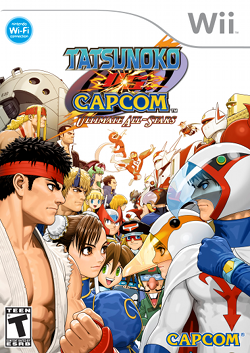
EverQuest is a 3D fantasy-themed massively multiplayer online role-playing game (MMORPG) originally developed by Verant Interactive and 989 Studios for Windows PCs. It was released by Sony Online Entertainment in March 1999 in North America, and by Ubisoft in Europe in April 2000. A dedicated version for Mac OS X was released in June 2003, which operated for ten years before being shut down in November 2013. In June 2000, Verant Interactive was absorbed into Sony Online Entertainment, who took over full development and publishing duties of the title. Later, in February 2015, SOE's parent corporation, Sony Computer Entertainment, sold the studio to investment company Columbus Nova and it was rebranded as Daybreak Game Company, which continues to develop and publish EverQuest.
Survival horror is a subgenre of horror games. Although combat can be part of the gameplay, the player is made to feel less in control than in typical action games through limited ammunition or weapons, health, speed, and vision, or through various obstructions of the player's interaction with the game mechanics. The player is also challenged to find items that unlock the path to new areas and solve puzzles to proceed in the game. Games make use of strong horror themes, such as dark mazelike environments and unexpected attacks from enemies.

Numerous video games based on the Jurassic Park franchise have been released. Developers Ocean Software, BlueSky Software and Sega produced various games in 1993, coinciding with the first film, Jurassic Park. In 1997, several developers, including DreamWorks Interactive and Appaloosa Interactive, produced various games for nine different platforms to coincide with the release of the film The Lost World: Jurassic Park.

The Capcom Five are five video games that were unveiled by Capcom in late 2002 and published from March 2003. At a time when Nintendo's GameCube console had failed to capture market share, Capcom announced five new GameCube titles with the apparent goal of boosting hardware sales and demonstrating third-party developer support. Capcom USA followed up with confirmation that they would be exclusive to the GameCube. The five games were P.N.03, a futuristic third-person shooter; Viewtiful Joe, a side-scrolling action-platformer; Dead Phoenix, a shoot 'em up; Resident Evil 4, a survival horror third-person shooter; and Killer7, an action-adventure game with first-person shooter elements. Though not directly related to each other, they were all overseen by Resident Evil director Shinji Mikami and, except Killer7, developed by Capcom's Production Studio 4. Capcom USA later clarified that only Resident Evil 4 was intended to be exclusive; the initial announcement was due to a miscommunication with their parent company.

Marvel: Ultimate Alliance is a 2006 action role-playing video game published by Activision for various gaming systems. Developed by Raven Software, Ultimate Alliance is set within the fictional Marvel Universe and features many of the superheroes, supervillains, and supporting characters that appear in publications by Marvel Comics. It shares many similarities with Raven Software's previous Marvel titles, X-Men Legends and X-Men Legends II: Rise of Apocalypse, in that it allows players to select from its vast cast to create the ultimate superhero team. The game features an original plot in which the heroes of the Marvel Universe must join forces to defeat Doctor Doom and his Masters of Evil and foil their plans for global domination.

GameFAQs is a video gaming website that hosts guides and other resources, as well as an active message board forum. It was created in November 1995 by Jeff Veasey and has been owned by Fandom, Inc. since October 2022. Allen "SBAllen" Tyner was lead Admin for twenty years until stepping down on October 18, 2023. The site is currently run by Community Manager "DToast" and Contributor Lead "ZoopSoul".

Tatsunoko vs. Capcom: Ultimate All-Stars is a crossover fighting game developed by Eighting and published by Capcom. The game features characters from both Capcom's video game franchises and various anime series produced by Tatsunoko Production. It was originally released in Japan for arcades and the Wii video game console in December 2008 as Tatsunoko vs. Capcom: Cross Generation of Heroes. Following high demand from international fans, Capcom worked with Tatsunoko to resolve international licensing issues and a second version, Ultimate All-Stars, was released for the Wii in North America, Japan, and Europe in January 2010, featuring additional characters and online multiplayer.
The 1990s was the third decade in the industry's history. It was a decade of marked innovation in video gaming. It was a decade of transition from sprite-based graphics to full-fledged 3D graphics and it gave rise to several genres of video games including, but not limited to, the first-person shooter, real-time strategy, survival horror, and MMO. Arcade games, although still very popular in the early 1990s, began to decline as home consoles became more common. The fourth and fifth generation of video game consoles went on sale, including the Sega Genesis, Super Nintendo, Sega Saturn, PlayStation, Nintendo 64, Game Boy Color and the Sega Dreamcast. Notable games released in the 1990s included Super Mario World, Sonic the Hedgehog, Street Fighter II, Mortal Kombat, Tekken 3,Doom, Wolfenstein 3D, Quake, Duke Nukem 3D, Final Fantasy VII, Unreal Tournament, Star Fox, Half-Life, Grand Theft Auto, Super Mario 64, Pokémon Red and Blue, NBA Jam,Daytona USA, GoldenEye 007, System Shock 2, Civilization,Ridge Racer, Sonic Adventure, Gran Turismo, Super Mario Kart, Pokémon Gold and Silver,Castlevania: Symphony of the Night, Super Metroid, Silent Hill, Dead or Alive 2, The Legend of Zelda: Ocarina of Time, Crash Bandicoot, Spyro The Dragon, Fallout, Metal Gear Solid, Diablo, Virtua Fighter, Tomb Raider,Sega Rally Championship, Wing Commander,Super Smash Bros, Secret of Mana,Thief: The Dark Project, Age of Empires, Nights into Dreams, Panzer Dragoon, Gunstar Heroes, EverQuest, Chrono Trigger, Battletoads, Worms, Myst, Micro Machines, Streets of Rage 2,Baldur's Gate,Donkey Kong Country, Wipeout, The Legend of Zelda: A Link to the Past, Super Mario Land 2: 6 Golden Coins,Lemmings, EarthBound, StarCraft, Banjo-Kazooie, PaRappa the Rapper, Resident Evil, Tony Hawk's Pro Skater, Soulcalibur, Command & Conquer, and Dance Dance Revolution.

Ghosts 'n Goblins, known in Japan as Makaimura, is a run-and-gun platform video game series created by Tokuro Fujiwara and developed by Capcom. The first entry in the series was Ghosts 'n Goblins, released in arcades on July 7, 1985. The series has subsequently been ported to and released on a variety of personal computers, game consoles and mobile platforms and spawned several sequels and spin-offs.

Video games are a major industry in Japan, and the country is considered one of the most influential in video gaming. Japanese game development is often identified with the golden age of video games and the country is home to many notable video game companies such as Nintendo, Sega, Bandai Namco Entertainment, Taito, Konami, Square Enix, Capcom, NEC, SNK, and formerly Sony Computer Entertainment. In 2022, Japan was the third largest video game market in the world after the United States and China.







